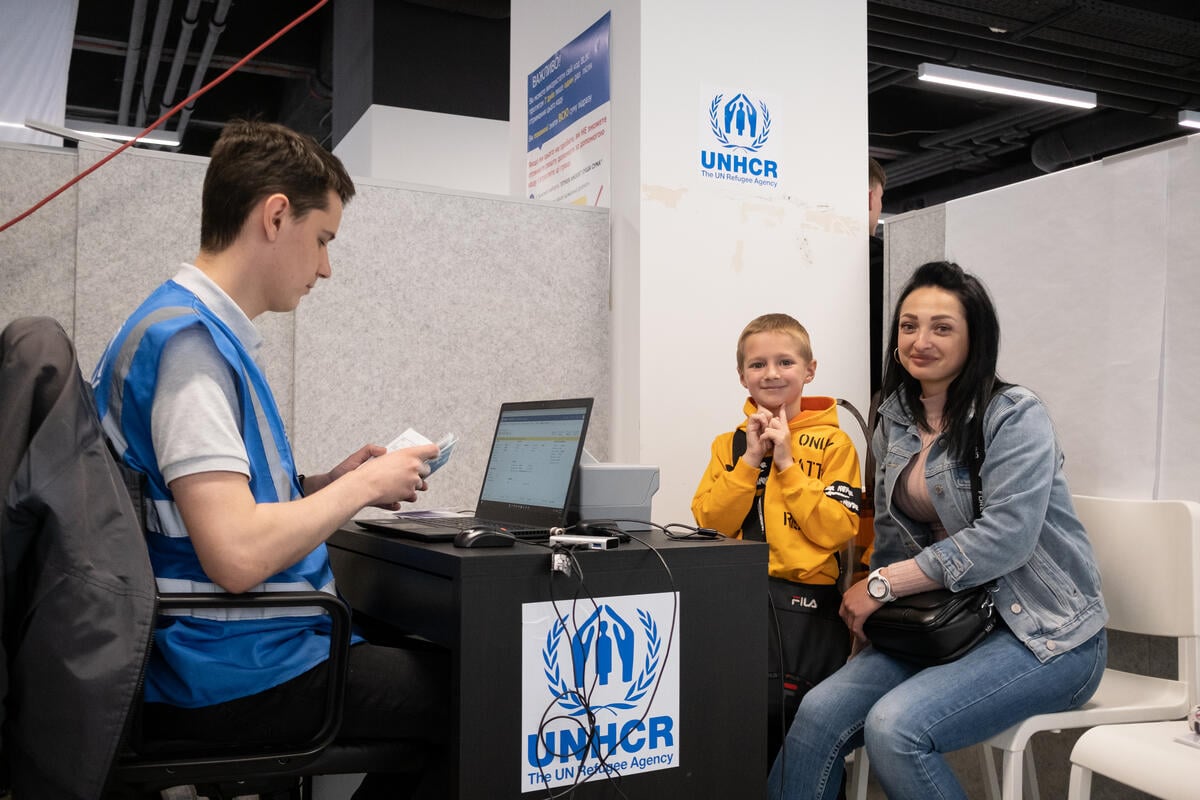Asylum system in Burundi established with UNHCR's support
Asylum system in Burundi established with UNHCR's support

BUJUMBURA, Burundi, April 16 (UNHCR) - Burundi, an important host country for refugees over the past four decades, has just established a specialized office for asylum with help from the UN refugee agency. The development comes a year after the country passed its first asylum law.
"The refugee agency welcomes these important steps towards improving refugee protection in Africa's Great Lakes region," said Bo Schack, the UNHCR representative in Burundi. "The government will now be clearly in the driver's seat," he added.
The cabinet approved the creation of the National Office for the Protection of Refugees and Stateless Persons on April 2 and the new body started interviewing asylum seekers on Tuesday. It will be responsible for the 27,800 refugees and asylum seekers living in camps or urban areas in Burundi.
"The authorities will in the medium term deliver all documents to refugees and asylum seekers themselves. Today, this is still partly in UNHCR's hands," Schack explained. "We also hope that once the new asylum office is fully operational, Burundi's asylum procedure will become quicker."
In its dealings with asylum seekers, Burundi has referred to laws governing the entry and stay of foreigners. Decisions on asylum claims have been made by non-specialists. There is a backlog of some 5,000 cases awaiting a decision, some of them years old, because of the slow pace of processing the applications.
The UN refugee agency had previously supported the government in drafting a new legal framework for dealing with asylum seekers and refugees - the country's first asylum law entered into force in 2008. UNHCR then helped set up the National Office for the Protection of Refugees and Stateless Persons by providing expert advice and guidance as well as office equipment and vehicles.
UNHCR experts in March held a training course for the new office's staff on issues such as refugee status determination, international refugee protection norms, human rights and UNHCR's mandate.
"They are young and motivated, but they do not have any previous experience in refugee status determination," said Periklis Kortsaris, one of the experts who led the week-long course. "We trained them in the refugee definition and basic standards for an asylum procedure. They will now be able to decide on asylum applications in accordance with international standards."
The project has been funded by the European Commission under its Strengthening Protection Capacity Project, which helps non-European Union countries to develop fully functional asylum systems, thereby enhancing the protection of asylum seekers and refugees worldwide.
Most of the refugees and asylum seekers hosted by Burundi come from the neighbouring Democratic Republic of the Congo. UNHCR has been present in Burundi since the 1960s, helping the government to protect and support refugees.
By Andreas Kirchhof in Bujumbura, Burundi








